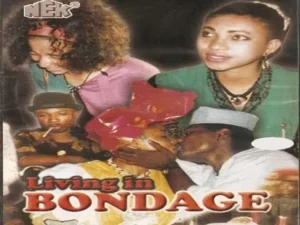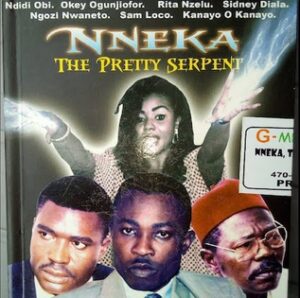5 Nollywood Dramas That Shaped Our Childhood With Horror
5 Nollywood Dramas That Shaped Our Childhood With Horror
Long before high-budget Nollywood blockbusters, early Nigerian movies had a special kind of magic. They were raw, dramatic, and, in many cases, terrifying. These were the films that made kids sleep with the lights on, fear wealthy uncles, and second-guess every handshake from a stranger.
From chilling supernatural horrors to gripping tales of greed and betrayal, these movies didn’t just entertain—they shaped our childhoods and left lasting lessons. Let’s take a nostalgic trip back to some of the most unforgettable Nollywood dramas that defined an era.
Living in Bondage (1992)

If there’s one movie that started it all, it’s Living in Bondage. This film set the foundation for Nollywood and introduced the infamous theme of ritual money-making that would dominate Nigerian cinema for years.
The story follows Andy Okeke, a desperate man who sacrifices his wife in exchange for wealth. But his new fortune comes at a terrible price—his life turns into a nightmare as he’s haunted by his wife’s vengeful spirit.
This film was more than just a hit; it became a cultural phenomenon. It fueled fear of “blood money” and reinforced the belief that sudden wealth often had dark secrets.
Karishika (1996)

If you grew up in the 90s and early 2000s, Karishika was the reason you couldn’t sleep alone. This horror film told the story of Karishika, a seductive demon sent from the underworld to lure men into destruction.
With her chilling chant—”Karishika, Karishika, Queen of Darkness!”—and creepy visuals, the movie spread paranoia among children and adults alike. Parents used it as a warning against worldly temptations, and church sermons weren’t complete without a reference to Karishika’s evil tricks.
Even today, the name Karishika is still used to describe someone who’s dangerously deceptive. That’s how deep its impact was.
Blood Money (1997)

After Living in Bondage, Blood Money took ritualistic horror to another level. This film followed the story of a struggling man who is lured into a secret cult promising unimaginable riches. But the wealth came with blood sacrifices, and once you were in, there was no way out.
Starring industry legends like Kanayo O. Kanayo and Zack Orji, Blood Money reinforced the fear of sudden wealth and left many Nigerians questioning the source of anyone’s riches. The film became so iconic that Kanayo O. Kanayo himself is still jokingly referred to as “Nollywood’s ritualist-in-chief.”
Nneka the Pretty Serpent (1994)

Nneka the Pretty Serpent was another supernatural horror that made waves in early Nollywood. The story followed Nneka, a beautiful but mysterious woman who seduced and destroyed wealthy men. She wasn’t just dangerous—she was literally a serpent in disguise, controlled by dark forces.
This film popularized the idea of “marine spirits” (mammy water) in Nollywood, leading to even more films about beautiful yet deadly women from the sea. It also made many men extra cautious of overly charming women with “snake-like” features.
Billionaire’s Club (1999)

Billionaire’s Club took the secret society theme to another level, showing how the country’s wealthiest men maintained their power through occult practices. The film starred Nollywood heavyweights like Pete Edochie, Sola Sobowale, and Clem Ohameze, delivering intense drama, betrayal, and dark sacrifices.
The movie fueled real-life conspiracy theories about Nigerian elites, with many people believing that secret cults controlled politics and business. Even today, whispers of “Billionaire’s Club things” still pop up whenever a young millionaire rises too fast.
The lasting impact of these movies
These early Nollywood dramas weren’t just entertainment; they shaped cultural beliefs, influenced moral teachings, and, for some of us, created lasting childhood trauma. They reflected society’s fears, the dangers of greed, the power of the supernatural, and the consequences of bad choices.
While Nollywood has evolved with better storytelling and production quality, the legacy of these classic films remains. They were the foundation of what Nigerian cinema is today, and their impact still lingers in our collective memories.



